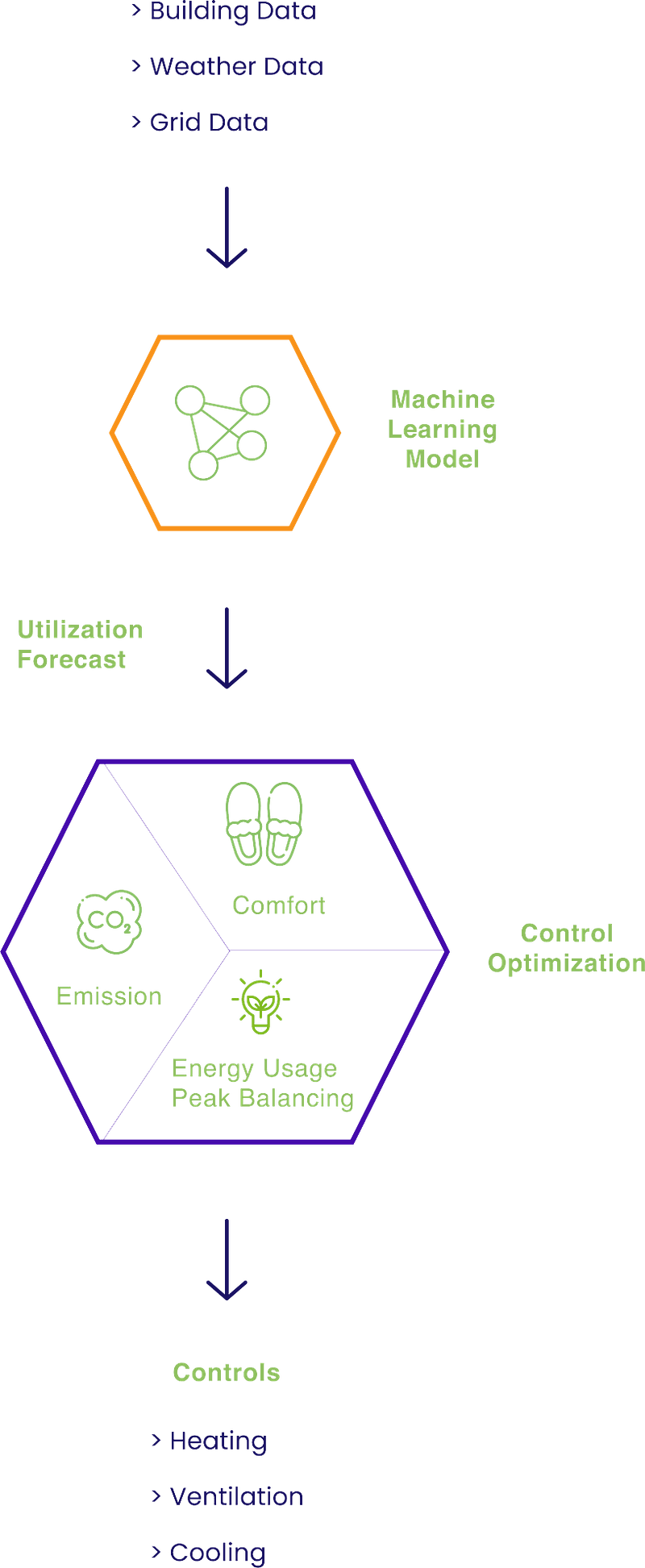Sustainability

Buildings are dumb
We all live and work in buildings, but operating them and sustaining the right temperature requires an enormous amount of energy. In fact, buildings account for more than 39% of global CO2 emissions and therefore have a huge savings potential.
Most buildings today don’t know about their surroundings and are controlled by a standard routine. This means, buildings only react to temperature changes, instead of proactively adapting to their environment and therefore wasting energy.
The Solution
A forecast-optimization engine for building management systems
1. A machine learning model derives a forecast of how a building will be used the following days based on building and weather data
2. A multi-parameter optimization algorithm derives ideal controls for heating, ventilation and cooling towards three goals: user comfort, reduction of emissions and energy usage
3. With the derived controls, the Building Management system reduces total energy usage by proactively adapting to weather changes. By accounting the availability of renewable energy and shifting its usage, the building can further save emissions

Benefits
- Energy and cost savings of up to 30%
- Reduced emissions by shifting energy usage to times with better availability of renewable energy
- Flexible and self-learning approach that can be integrated into different Building Management Systems
Further Use Cases
- Energy Optimization: Shift loads of energy intensive processes to the use of renewables
- Cost Optimization: Build digital twins of your products or processes and optimize parameters to reduce costs
- Transportation: Derive smart schedules for public transportation systems
… and many more






